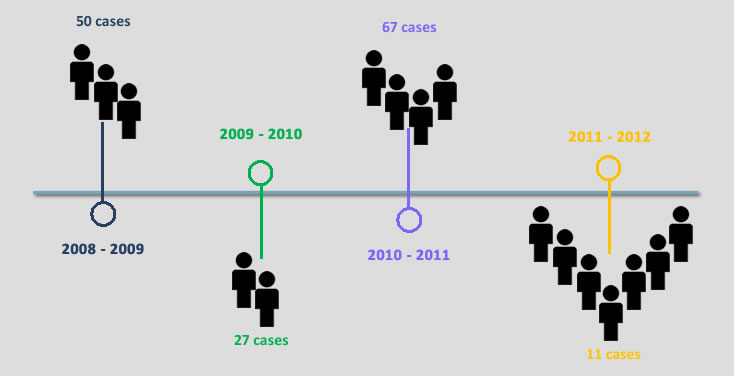Good practices and lessons learned
 CASE STUDY
CASE STUDY
 CASE STUDY
CASE STUDY
CIAA Nepal
UNDP 2013, Beth (no date)
Following the 2006 'Peace Accord’ between political parties and the insurgent Maoist Party, the 2007 Interim Constitution retained the CIAA as a constitutional authority to curb corruption. However after 2007, the anti-corruption drive gradually weakened due to lack of political will and more focus on the peace process and the drafting of the constitution. Since the Interim Constitution of 2007, policies have been formulated by consensus; but because the Constitutional Council could not agree on a candidate for Chief Commissioner, the CIAA had no Chief Commissioner for almost 5 years and no commissioners for 3 years. During this period the CIAA was run by the Secretary of the Commission, an administrative head, resulting in limited investigation. During this time, for instance, the CIAA prosecuted the following:

The only high profile corruption case were filed except the Nepal Police corruption case in procurement in Sudan.